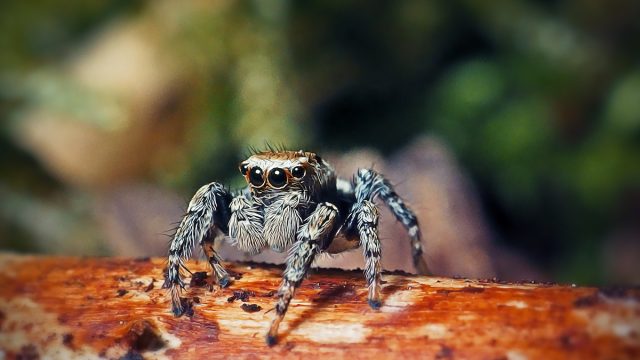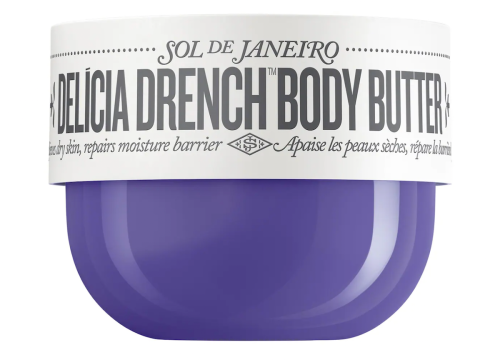Shoppers Claim Sephora’s Body Lotion Is Attracting Wolf Spiders

There are lots of nightmare situations that can occur when trying a new beauty product. For example, it can cause you to break out in pimples or hives or cause uncomfortable sensations like burning or stinging. But there’s another equally frightening scenario you might not have considered: an infestation of wolf spiders. According to some people, that’s exactly what happened when using Sol de Janeiro’s Delícia Drench Body Butter for Intense Moisture and Skin Barrier Repair, a lotion sold by Sephora.
RELATED: Doctors Keep Finding Spiders in People’s Ears—These Are the Tell-Tale Symptoms.
On a page for the lotion on Sephora, one since-deleted review claims: “If you’re scared of wolf spiders — watch out for these lotions lol. I wanted to love them sooo bad, but one of the ingredients is like kryptonite to wolf spiders! When I put it on instantly, one will come out. Normally, I’ll see one every like 3 years, used this and it was every day. I stopped using it and haven’t seen one since.”
Other beauty lovers posted the review to a popular Reddit community, where the accusations continued. “Just did a little dive into chemicals that attract spiders because I really don’t like bugs. According to studies? There is a two-component female-produced pheromone of a spider. It basically signals for sexual communication,” one person wrote.
“The chemical analysis reveals that ‘farnesyl acetate, diisobutyl phthalate and hexadecyl acetate of the spider webs exhibited higher relative abundance in sexually receptive females’ also, ‘Two choice behavioral essays verified that the blend of farnesyl acetate and hexadecyl acetate attracted males,'” the Redditor continued.
“Farnesyl acetate is primarily used in skincare for fragrance and same for Hexadecyl Acetate (cetyl acetate) for fruity smell and waxy appearance. Cetyle acetate is commonly used as a thickening agent for body cream and lotion,” they concluded. “Summury [sic]: combine farnesyl acetate with hexadecyl acetate in right dosage and it might bring all the thirsty boy spiders to your yard. Because you may also smell like a thirsty girl spider.”

Perhaps unsurprisingly, the brand quickly debunked the claim. “We didn’t think we would wrap 2023 becoming an urban legend,” Sol de Janeiro wrote in an Instagram story on Dec. 29, per The New York Times. “All of our products, including our new Delicia Drench Body Butter and upcoming Cheirosa 59 Perfume Mist are free from farnesyl acetate, diisobutyl phthalate and hexadecyl acetate. So while they may attract a lot of attention from people, they won’t from arachnids (even though we love all creatures at Sol de Janeiro).”
Scientists found the claims dubious, too. Shawn Gleason, PhD, an entomologist and the founder of Bugs Encyclopedia, explains that in order to understand why the review is so bizarre, it’s important to understand spider behavior.
“Wolf spiders, by nature, are not attracted to specific scents like farnesyl acetate or hexadecyl acetate,” he says. “These spiders are hunters who rely on movement and vibrations to locate prey, not fragrances or lotion ingredients.”
So, the idea that a certain scent could attract spiders is a myth—since that’s not how they understand the world. Instead, spiders respond to things they can comprehend, like food and shelter. “Factors like seasonal changes, particularly in warmer months, can increase their visibility as they become more active in searching for mates and prey,” Gleason explains.
So, folks might see more wolf spiders inside as they escape frigid temperatures during the winter months. But they probably won’t see them because they’ve seduced them with scent.
For more up-to-date information sent right to your inbox, sign up for our daily newsletter.